Built in 1932, the Palazzo Littorio in Pietrasanta is part of an urban plan centered around a large public space, now known as Piazza Matteotti.
Its strategic placement—terminating the square’s visual axis toward the sea—makes it a monumental backdrop, further emphasized by the neoclassical double order of its façade.
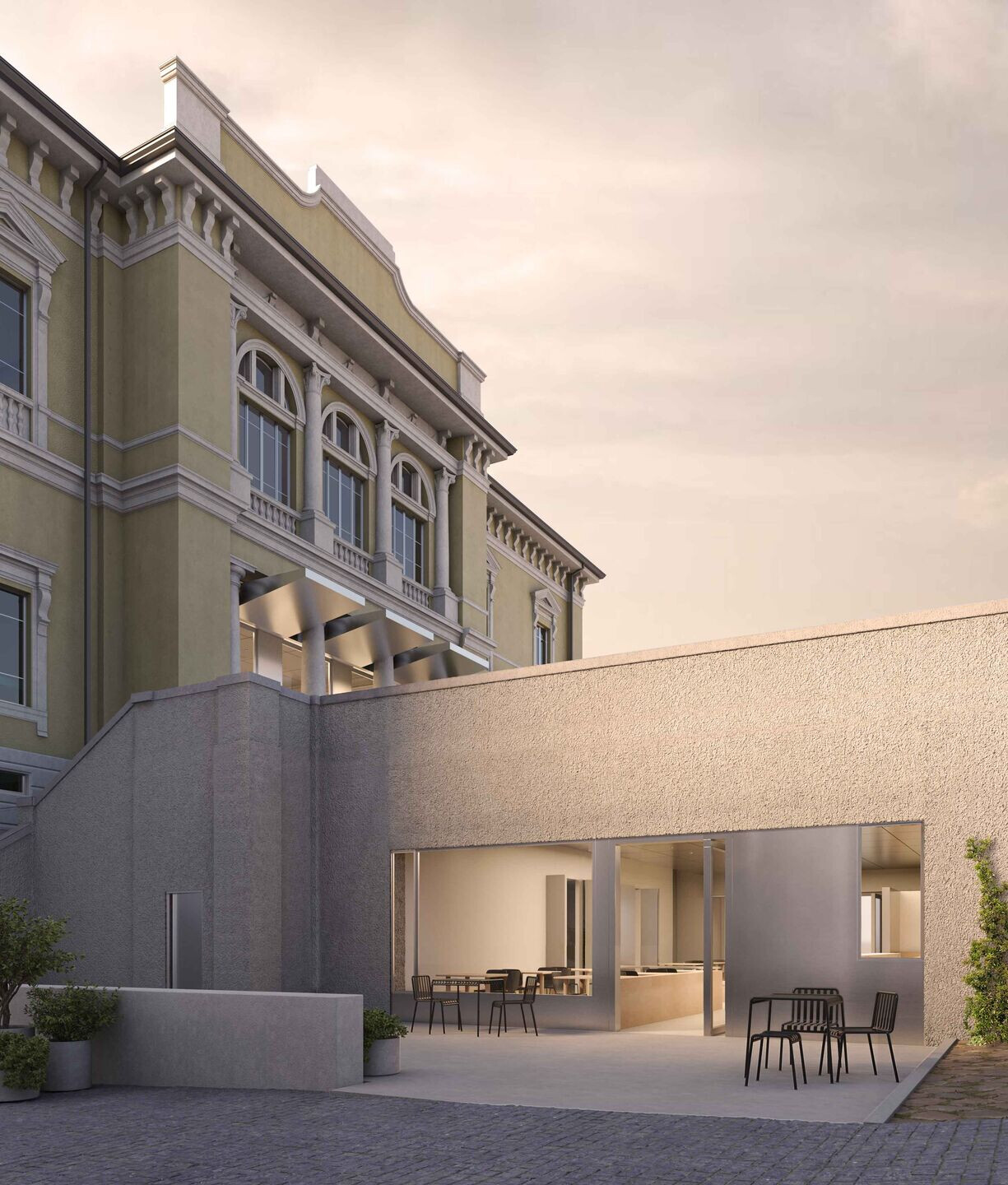
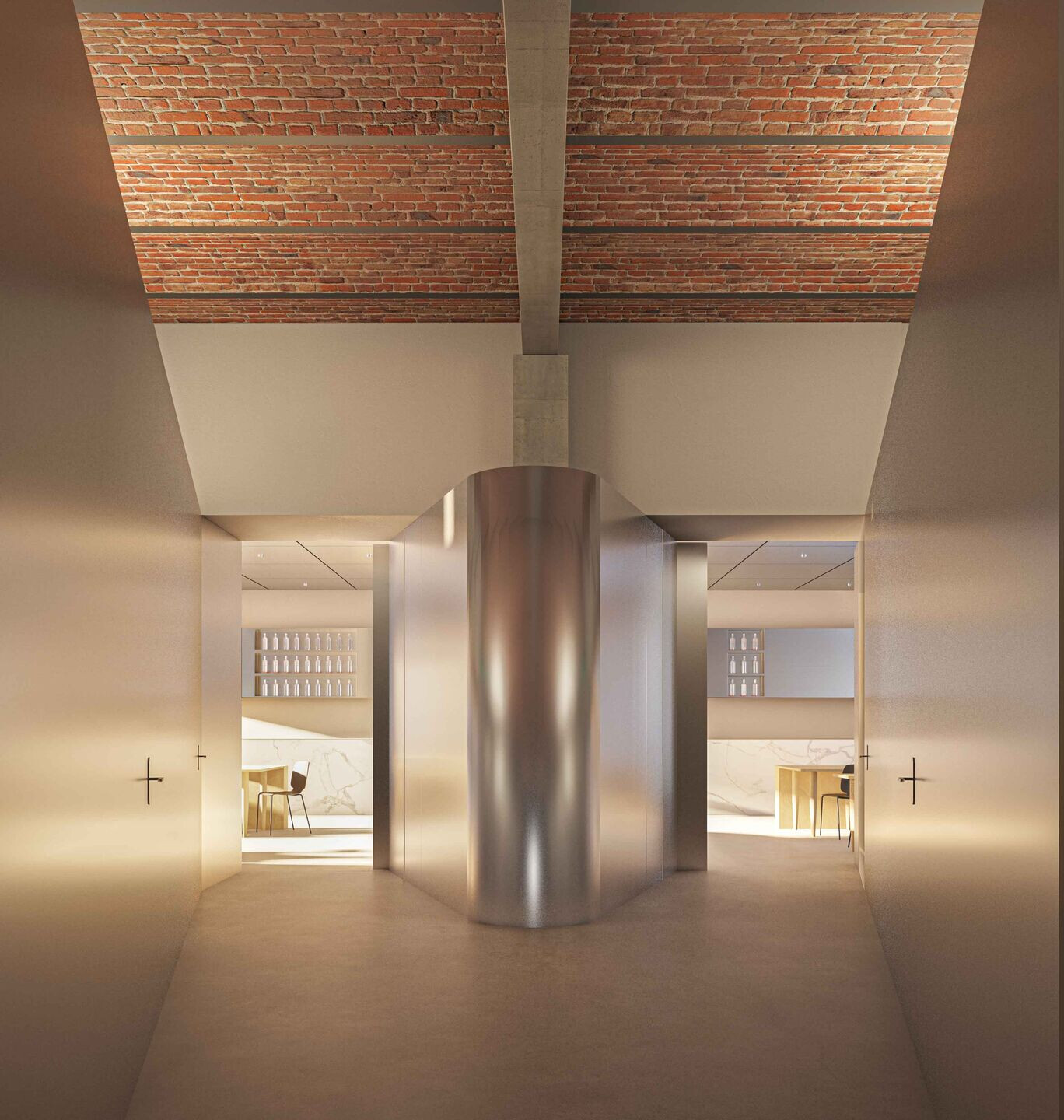
Originally, the building featured three above-ground floors with generous interior heights (around 6 meters) and large rooms that hosted representative and recreational functions, such as the assembly hall and the gymnasium. After World War II, it became the seat of the municipal government, a role it maintained until 2022.
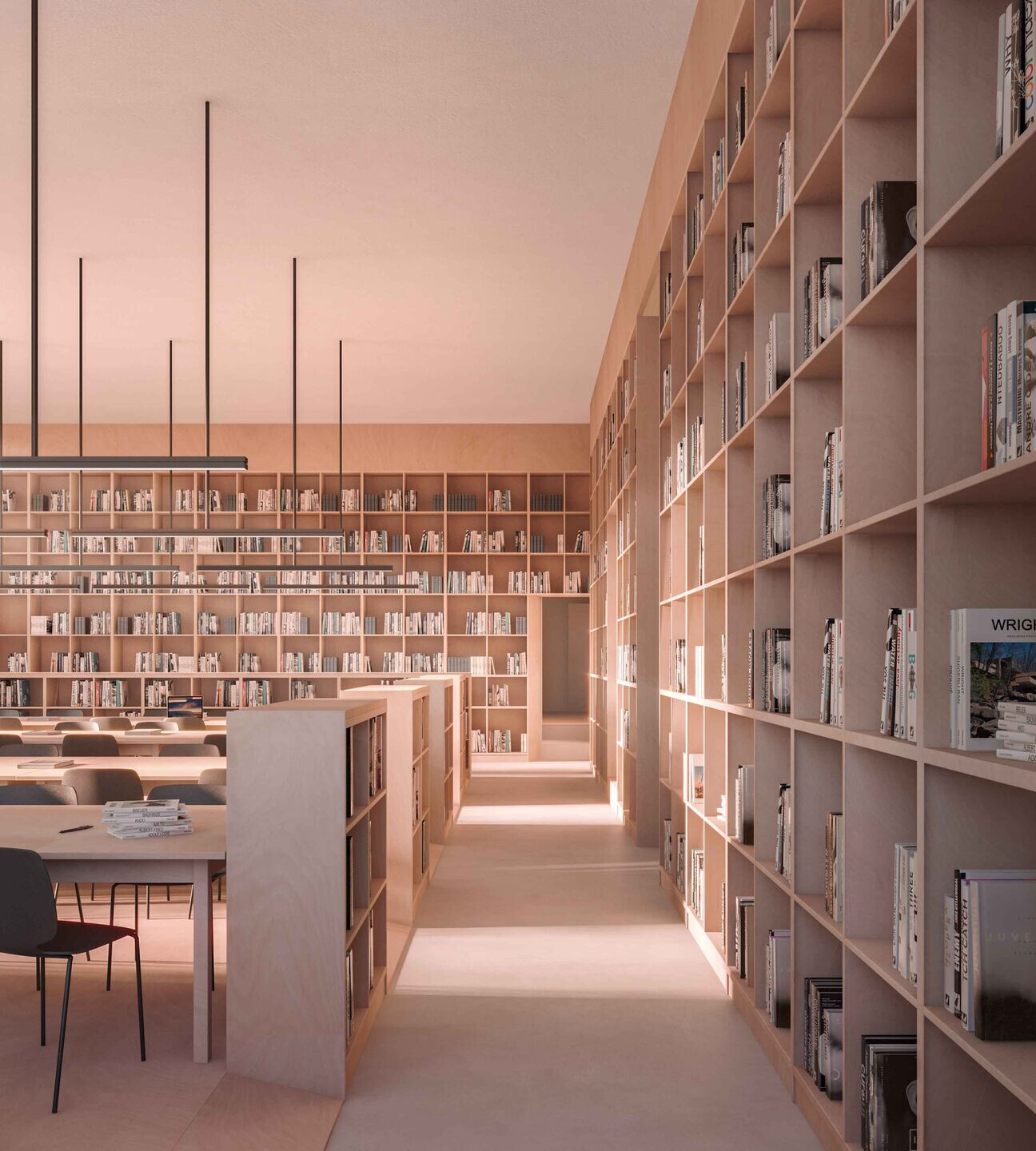
Over the years, significant interventions were made to accommodate new functional needs, altering the original character of the building. Notably, mezzanine levels were inserted between the ground and first floors and between the first and second floors, along with various local additions.
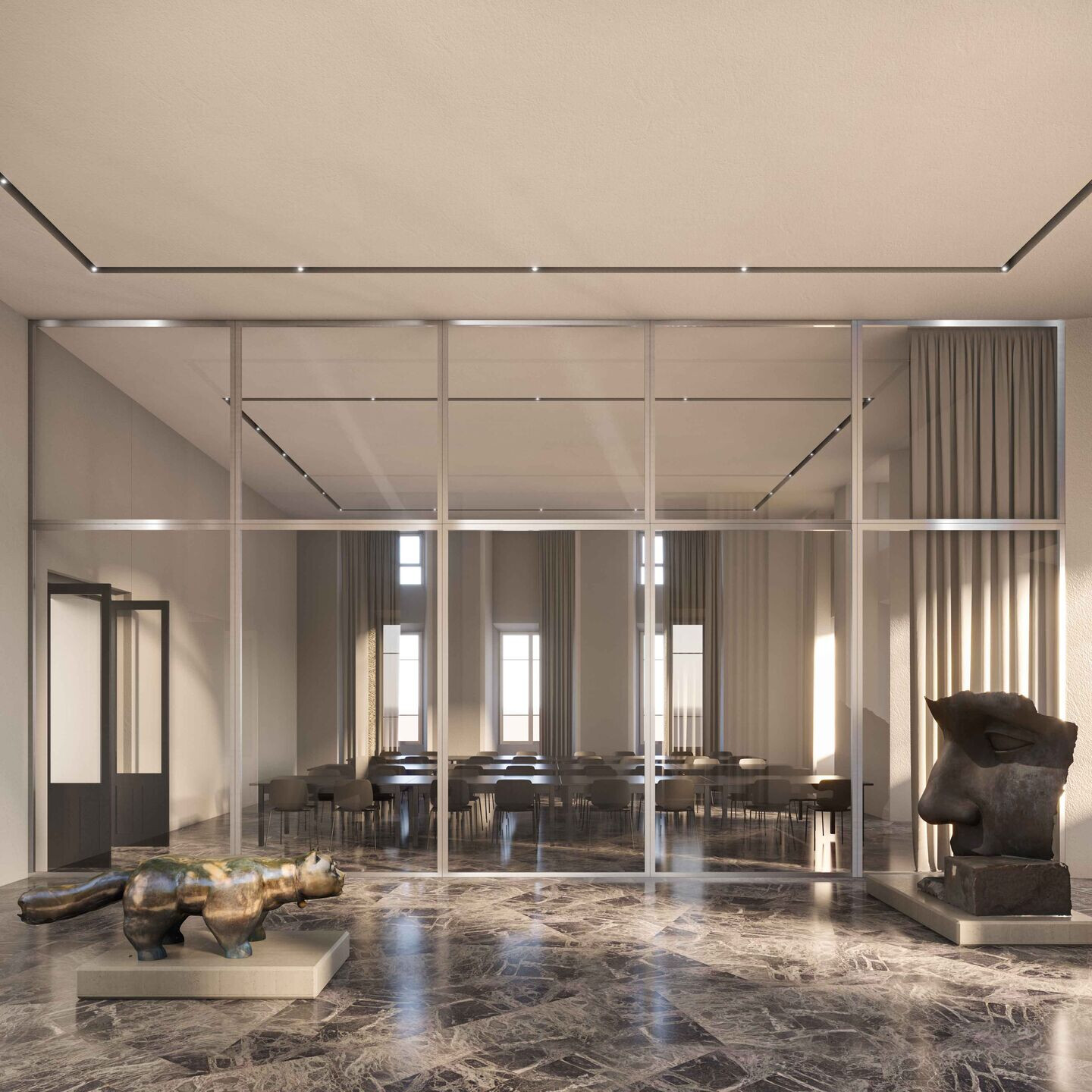
In 2024, the Municipality of Pietrasanta decided to transform the Palazzo into the city's new cultural hub. It will house the Historical Archive—with its important collection of maps and documents—and the Civic Library, currently located in the former Convent of Sant’Agostino, along with spaces for events and temporary exhibitions.
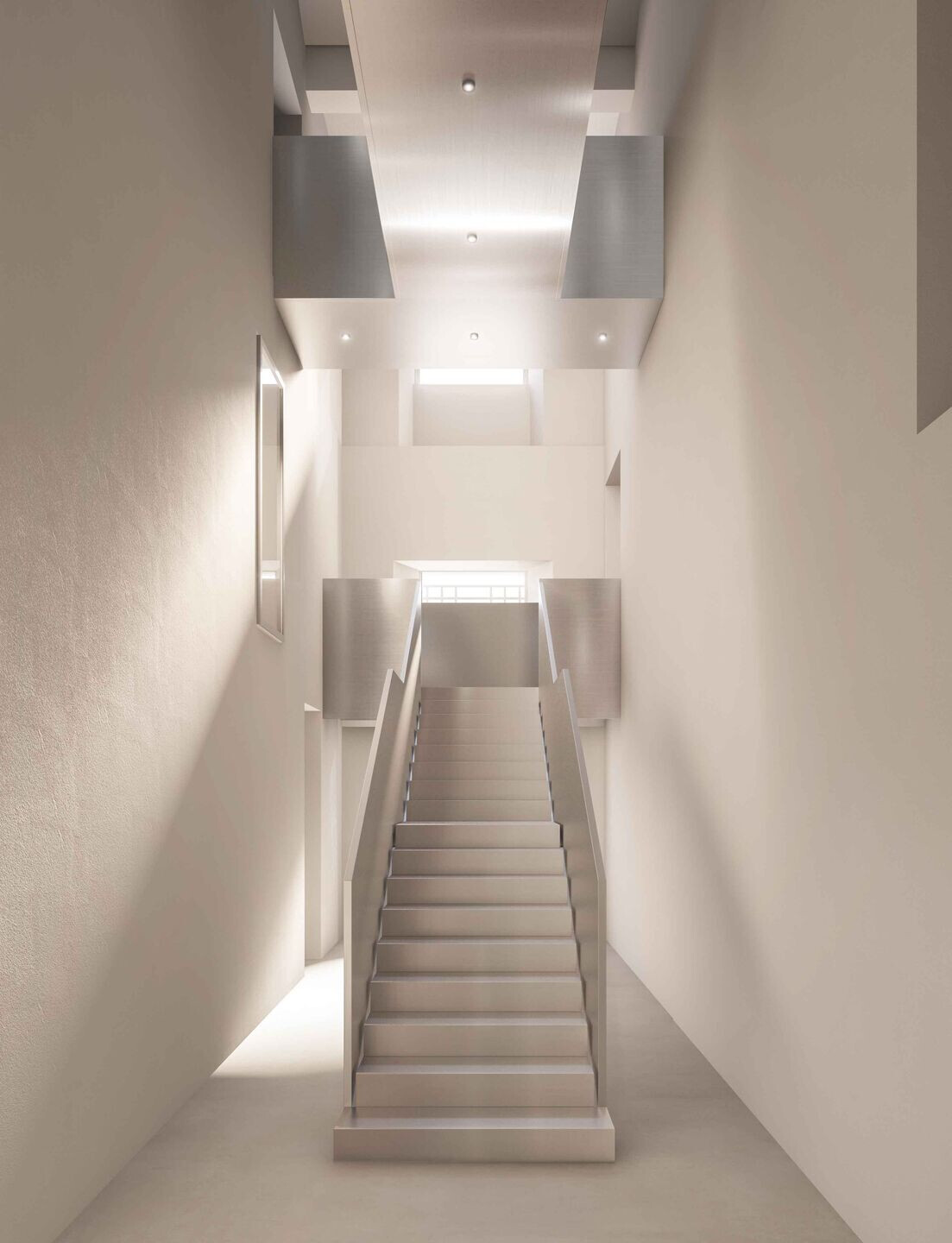
The building will thus become a versatile museum space, where permanent and temporary elements exist in continuous dialogue.
























